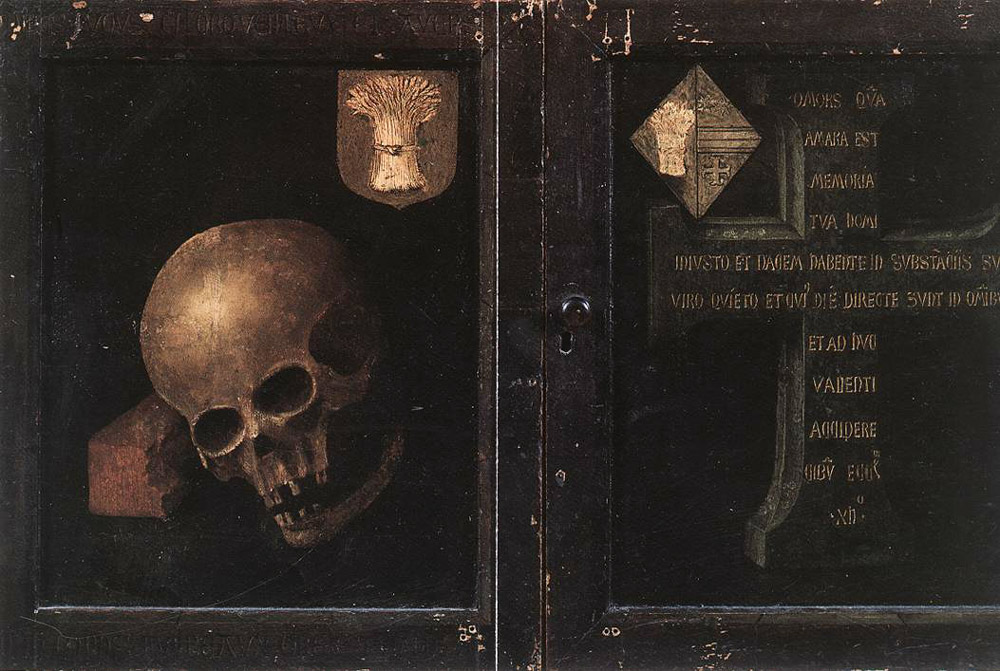
Today is All Saints’ Day, or the Feast of All Saints, the day when many churches in the Western liturgical tradition (i.e., Roman Catholic, Anglican, Lutheran, Methodist) honor all of the saints of the church, known and unknown. Tomorrow is thus All Souls’ Day, in which we remember all of the faithful departed. In a lot of churches, including our own St. Mary’s-in-the-Hills, these days will be celebrated this coming Sunday.
Points of timing aside, both of these days are also what we could call “memento mori,” reminders of the inevitability of death, including our own. In Latin, the phrase translates to “remember that you have to die,” a cheery thought indeed! In fact, for most of us, this is an uncomfortable fact to contemplate.
A friend of PubTheo’s, the Church of England priest the Rev. Gerry Lynch, writes in a sermon he delivered this past Sunday:
Death is part of all of our lives, yet we dislike contemplating it. That’s why we’re so keen to use euphemisms to describe death – passing away, departing from us – but death is as unavoidable and as real as it gets.
Funerals over recent decades have, on average, become much more jolly affairs, much more inclined to be celebrations of life than means of helping people process the overwhelming cocktail of experiences and emotions that proximity to death involves. It is almost as if a society where few people believe in an afterlife doesn’t want to deal with how final and overwhelming death is.
This, perhaps, is why we often go to pains to remember the dead. Lynch writes: “When we remember the dead, we bring them life again in us.”
There are all kinds of ways that we remember the dead, all kinds of rituals and practices that span cultures, religions, and belief systems. For example, the tradition of the “dumb supper” (here “dumb” means silent) comes down to us from the Celtic festival of Samhain, celebrated from Oct. 31 through Nov. 1.
In a dumb supper, places are set at the table for those who have passed on, and food is consumed by celebrants, but only after inviting ancestors to join in. The supper gives the families a chance to interact with the spirits until they leave following dinner. Children would play games to entertain the dead, while adults would update the dead on the past year’s news. That night, doors and windows might be left open for the dead to come in and eat cakes that had been left for them. This is very similar to the celebrations that mark dia de los muertos, the Day of the Dead, in Mexico.
With this as our backdrop, we’re going to talk this evening about memento mori, and the ways that we choose to remember the dead in our own lives. Do we need reminders of our own inevitable death? Do you find it uncomfortable to contemplate your own death? What about the death of your loved ones? Finally, in what ways, if any, do you remember the people in your life who have died? What do you think of the idea of a “dumb supper” as a way to honor those who have gone on before? Is this, or something like it, a tradition you might adopt?
We’ll talk all about it in our conversation this evening, beginning at 7pm. Join us at 313 Pizza Bar in downtown Lake Orion for the discussion.